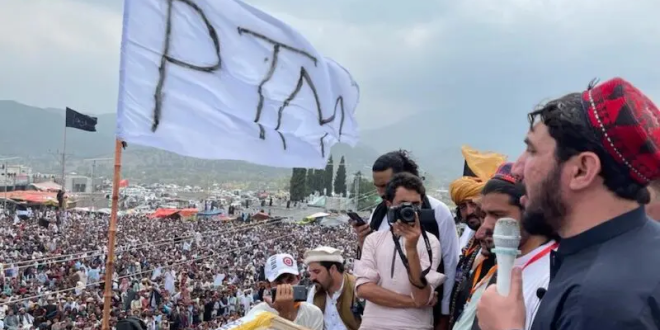Manzoor Pashteen, leader of the Pashtun Tahafuz Movement (PTM), delivered a compelling address at the “Pashtun Justice Jirga,” urging immediate action to reopen girls’ schools in Afghanistan under Taliban rule. Addressing a gathering representing nearly 50 million Pashtuns, Pashteen emphasized the critical need for unified efforts to confront the Taliban’s ongoing restrictions on education.
“This Jirga represents the collective voice of all Pashtuns,” Pashteen asserted, calling upon leaders and political entities to unite in advocating for girls’ education. He highlighted the widespread challenges faced across Pashtun communities, urging a joint assembly inclusive of representatives from previous Afghan governments and the Taliban to chart a common path forward.
In addition to addressing educational barriers, Pashteen touched upon the contentious Durand Line, dismissing its relevance to the Pashtun people. He adamantly stated, “We do not acknowledge this border or any authority that enforces it,” echoing sentiments of solidarity among Pashtuns beyond national boundaries.
Proposing a bold initiative, Pashteen suggested the formation of a 240,000-strong unarmed force to champion Pashtun rights, criticizing existing security measures for failing to provide adequate protection. He issued a 60-day ultimatum for the withdrawal of Pakistani military and Tehrik-i-Taliban Pakistan (TTP) forces from Pashtun regions, emphasizing the Jirga’s support as crucial to this initiative.
Highlighting the human cost of unrest, Pashteen lamented over 76,000 Pashtun lives lost to violence in Pakistan over the past two decades, underscoring the urgent need for effective solutions.
The three-day gathering, attended by representatives from major Pashtun political parties, convened amid initial opposition from the Pakistani government, which initially sought to ban PTM activities related to the Jirga. Following public outcry and negotiations, the ban was lifted, allowing the assembly to proceed.
As the Pashtun Justice Jirga progresses, it aims to present a unified stance on critical issues affecting Pashtun communities across Pakistan and Afghanistan, particularly focusing on girls’ education and broader human rights concerns.
 Afghanistan Times
Afghanistan Times




